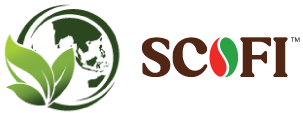What is Single-Origin Coffee?
The phrase “single origin” is a small phrase with a significant definition. The term is frequently shortened to unroasted coffee beans sourced from a single producer, crop, or region in a single country. The most crucial aspect of single-origin coffee is its traceability; you know precisely where your unroasted coffee beans come from and that it is a single coffee, not a blend.
The recognition is that the unroasted coffee beans are from a specific farm in a unique setting. At the same time, its flavour depicts its origin, possessing characteristics of that specific area where the particular coffee was grown and is usually of higher quality. Blended coffee, the polar opposite of single-origin unroasted coffee beans, is delicious in its own right. The primary distinction between single-origin coffee and blended coffee is that blended coffees are made with coffee beans from multiple locations.
Furthermore, single-origin unroasted coffee beans are usually very distinct because they come from a single region. Therefore, its characteristics vary depending on the region. Many roasteries prefer to roast single-origin unroasted coffee beans in a lighter roast so that all subtle notes can be tasted. On the other hand, certain flavours emerge only when roasted darkly. Single origins are unique because they are seasonal, have limited availability, and cannot be produced in large quantities.
Moreover, it is classified as a specialty coffee. A specific sample of beans is set aside for grading in the case of speciality coffee. The examiner will sift through the unroasted coffee beans, such as arabica beans and robusta beans, looking for defects and foreign matter.
Furthermore, single-origin unroasted coffee beans are more expensive for reasons other than grading. First, raw coffee beans are typically picked by hand rather than by machine. This allows for a more diverse selection of ripe and healthy cherries. The second reason is that because raw coffee beans can be traced back to their origin, businesses are scrutinized to ensure that they pay fair wages and treat their employees ethically. A third reason is that raw coffee beans often take longer to harvest, not only because they are picked by hand but also because they are often grown in difficult-to-access locations.
Scofi, the leading unroasted coffee bean supplier, constantly measures the quality of raw coffee beans using these three main systems. Cup of Excellence, Coffee Quality Institute Q, and Coffee Review is the three. The Cup of Excellence competition recognizes quality and care in producing specialized, rare lots and is regarded as the industry’s highest form of recognition.
The Coffee Quality Institute Q system adheres to SCAA standards and evaluates fine Arabica beans, fine Robusta beans, and blends at the producer and farm levels. Coffee Review, on the other hand, Coffee Review is handy for roasters and retailers. It reviews roast profiles and is arguably the world’s most widely read and influential coffee buying guide.
Because single-origin unroasted coffee beans can be traced back to a single location, they typically have a distinct, high-quality flavor that is influenced by the climate of the region in which they are grown, as well as the producer’s specific processing conditions. As a leading unroasted coffee bean supplier, Scofi strives to provide the highest quality raw coffee beans for sale. Our single-origin unroasted coffee beans are sourced from reputable growers in high-quality regions.
